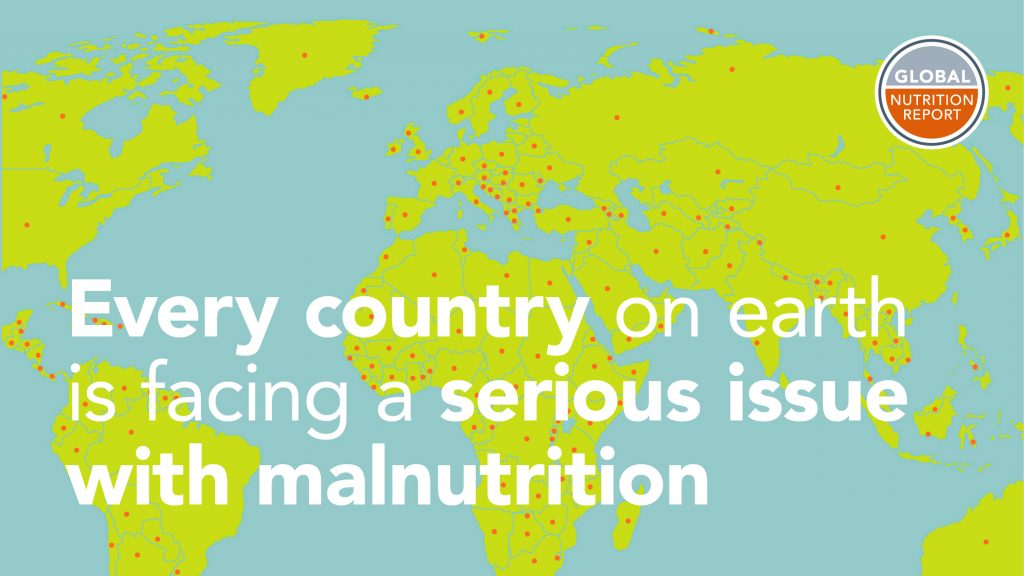Global Nutrition Report 2017: Malnutrition and its Threat to Development

Professor Corinna Hawkes is Co-Chair of the Independent Expert Group of the Global Nutrition Report and Director, Centre for Food Policy, City, University of London, UK
The Global Nutrition Report sets out to create accountability for greater action to end malnutrition. The report is written by the Independent Expert Group with data, guidance and funding provided by UN agencies, governments, funders, civil society and businesses. Established in 2013, we track global and national progress against nutrition targets, assess how well government, civil society and business are doing in keeping up with commitments they have made to address malnutrition, and evaluate financing. We also aim to challenge our own community and those beyond it to think and act differently for nutrition.
Why do we need an independent report on malnutrition? Because rigorous accountability requires independent oversight free from public or private sector interference, and because we need more attention on malnutrition, a condition we estimate over one out of three people experience.
In the Global Nutrition Report 2017 we show that – yet again – progress in achieving globally-agreed nutrition targets is too slow. At current rates, we are way off track to reach Target 2.2 of the Sustainable Development Goals to end malnutrition in all its forms. Certain forms of malnutrition like stunting (when kids do not grow enough) and wasting (when people are too thin to be healthy) are declining, but the rate of decline is slow. Micronutrient deficiencies simply are not budging; anemia among women is shockingly high not just in low- and middle-income countries, but high income countries as well. And it’s not just undernutrition we are talking about here, but obesity. Our data show that obesity among adults is rising – everywhere.
Why should we worry? Well for starters, it’s not nice and it’s not healthy to experience malnutrition – for anyone. But also, because poor nutrition is holding back development.
For example, stunting disrupts critical brain development that builds futures and economies. Investing in nutrition supports human development throughout life and enhances mental and productive capacity, offering a $16 return for every $1 invested. Malnutrition can have a real economic impact. For example, in the United States obesity accounts for about 8% of a household’s annual healthcare cost, and in China, diabetes – which can be an outcome of obesity – can mean an average income loss of 16.3% per year.
Investing in nutrition is thus the same as investing in development, yet just 0.5% of overseas development assistance goes to undernutrition, and only 0.01% on obesity and diet-related non-communicable diseases. For this reason, the 2017 report features the Bloomberg Philanthropies Obesity Prevention Program as one of the few programs working to fill this gap. By providing over $130 million to support cities and countries around the world to enact and evaluate policies that aim to curb rising rates of obesity, Bloomberg Philanthropies is enabling action to happen.
If we are really going to address obesity, we need to turbo-charge this type of financing to build capacity for advocacy and evaluation. We also need funding that works “double duty,” financing for policies and programs that address both undernutrition and obesity. This more holistic approach to addressing malnutrition is needed if we are to solve one of the greatest shames of our time: that one of the most basic things we need to sustain us for a healthy, productive, happy life – nourishment – is so woefully inadequate.
If the Global Nutrition Report achieves just one thing this year it is to make people empowered to do more because everyone can make a difference – for themselves, their communities and countries. Ultimately, this will lead to a better world, free from malnutrition in all its forms.